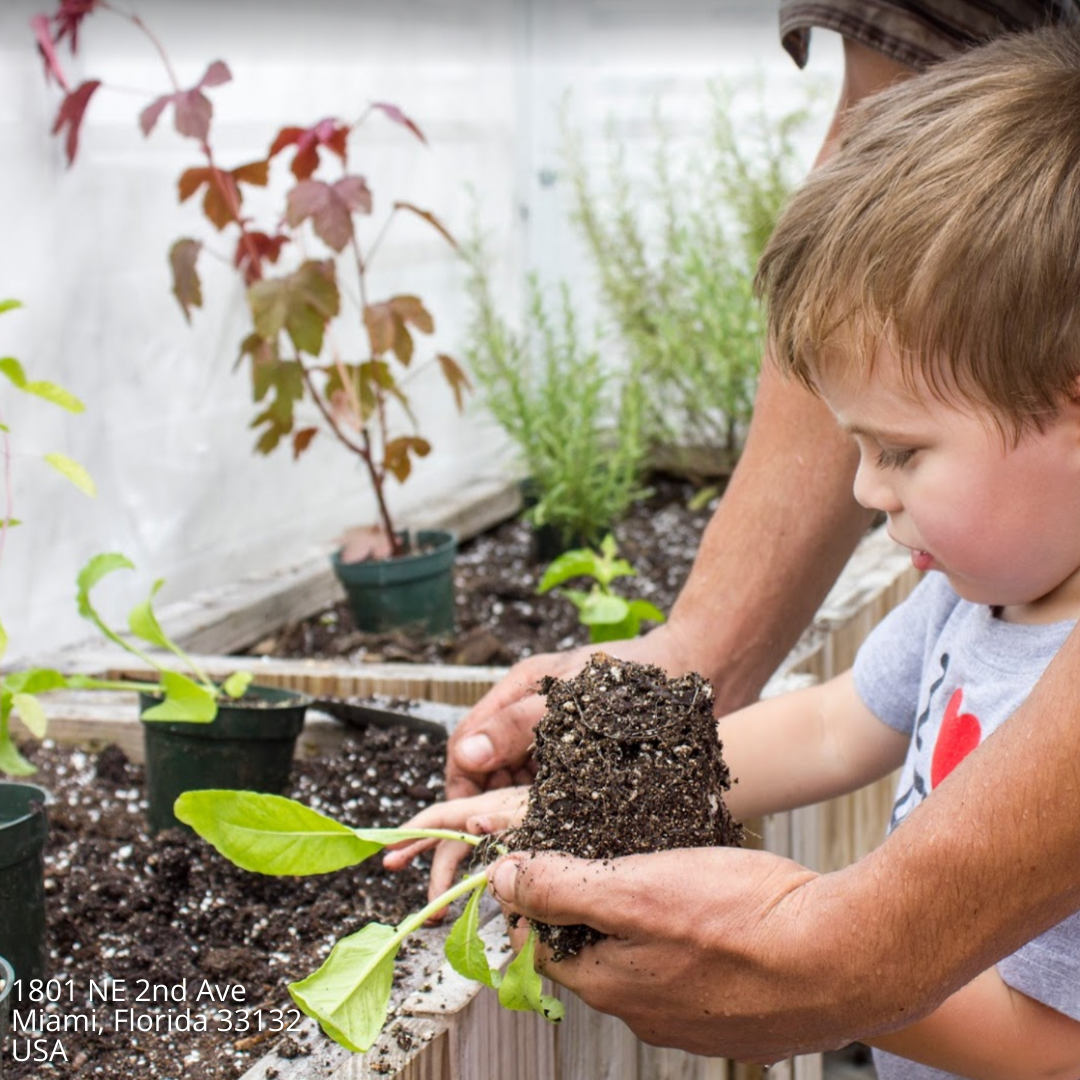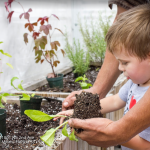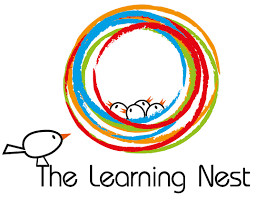Mental health being a public health concern doesn't just apply to adults in society but to children as well. They aren't at all immune to the positive effects of great mental health or the consequences of negative mental health.
Rather, they may even be more vulnerable since they aren't equipped with the experience to fully navigate life without help from loved ones.
Child Education, both at home and in the school environment is a major part of who they are, their emotional and social wellbeing, and who they'll eventually become. From daycare to preschool, ensuring that kids are in safe hands at all times and are being nurtured in the right way to ensure mental stability is crucial.
The Learning Nest is a Miami-based bilingual preschool that abides by the Montessori philosophy of allowing children to learn at their own pace in structured environments that promote children's self-discipline, confidence, and unique intellectual abilities through practical activities.
With a host of programs aimed at capturing the uniqueness of children and improving their mental health, parents looking for a preschool in Miami or Kindergarten in Miami, cherish the breath of fresh air that The Learning Nest brings into the intersection between children's education and positive mental health.
What Is Children's Mental Health?
Children's Mental Health is a continuum and refers to the progressive achievements of developmental and emotional milestones while imbibing healthy social and coping skills in the presence or absence of problems.
A mentally healthy child is able to function optimally both in home, school, community, and larger social situations. They also have an excellent quality of life and are equipped with the right skills to adapt and thrive.
Mental problems in children could manifest in several ways including shifts in children's behavior related to learning, emotional stability, and ability to handle problematic situations which may cause problems getting through everyday tasks.
Why Is Children's Mental Health Important?
Children's Mental Health is just as important as their physical health and well-being and should not be overlooked since it's one of the major indicators of the kind of adults they will become.
The experiences and memories a child builds now serve as important building blocks of their personalities and adult life. It's best to help them along the way to carry out important tasks, learn balance, improve their coordination, develop good reasoning skills and strengthen them mentally.
What Mental Health Problems Do Children Face?
About one in six children experience mental health problems, with only about 75% of the affected children getting the help they need. Children could face mental health problems ranging from ADHD(Attention-Deficit Hyperactivity Disorder) to extreme anxiety and even depression or self-harm.
Generalized Anxiety Disorder (GAD) is a common problem among young children, especially when they are just starting or are moving schools with separation anxiety.
Post-traumatic stress disorder (PTSD) is another mental health problem that children face. Contrary to some opinions that children easily overcome or forget trauma, about 3 to 15% of girls and 1 o 6% of boys that have witnessed traumatic events develop PTSD
Children who have been noticed to be impulsive, extremely overactive, or face a constant inability to focus or pay attention in different situations may be suffering from Attention Deficit Hyperactivity Disorder (ADHD).
Children who are consistently sad over long periods, staying in negative moods, or showing signs of reduced pleasure from playing or engaging in social activities like they once did should not be overlooked or assumed that they'll grow out of it. They may be experiencing early-onset depression and should be promptly checked on.
How Do Parents Affect Children's Mental Health?
The development and progression of a child's mental health are connected to the mental health, stability, and adequate support provided by the parents and other primary caregivers and support sources like their teachers.
They play important support roles in gently guiding children to becoming independent, successful, and healthy adults.
Parents who are facing their own mental health challenges like depression or anxiety may also find it hard to care for their children the right way if they do not seek help.
The environment that parents and caregivers create in the home and school also has a major influence on children's mental health.
Parents should invest in their children's education coupled with providing a suitable home environment for the children to thrive without negativity.
The Learning Nest Montessori Bilingual Preschool in Miami provides an environment where children are around loving and professional staff who take it upon themselves to properly nurture kids, aiding them through useful practical activities.
How To Improve Children's Mental Health
Parents invested in ensuring their children's mental health is at its best have huge roles to play which may include;
Positive Parenting and Communication
It's important to communicate properly with children and not just assume anything. Talking to them and actively listening when they speak as well goes a long way in building their self-esteem and confidence. It teaches them that their opinions matter and that the relationship is built on mutual respect, so when they have a problem they won't feel the need to hide it.
It is important that you speak about their concerns, especially if they are having trouble coping. Make sure the conversations stay positive and allow them time to ask questions without being judged or analyzed for what's going on in their lives.
Positive parenting involves using kindness and positive interactions to nurture, guide, and protect children. This starts from how parents relate to children, the words they speak to them, and how they correct bad behavior and encourage future good behavior.
Helping Them Create a Culture of Mindfulness
Even as adults, learning to be grounded at the moment and slowing down enough to live in each moment is important.
Children also need to be guided carefully to learn mindfulness as it helps with focusing and being in the moment. It also helps them deal better with anxiety, make better decisions even in times where they are troubled, and improve their self-esteem.
Show, Not Just Tell
Telling children something is one thing but showing always trumps that because they are able to absorb and learn from their environment majorly at that young age.
It's why parents shouldn't just tell their children how much they love them, but also show it in everyday acts like hugs, quality time and attention, active listening, empathy, and participation in their lives.
Being a good role model as a parent is very important because children are imitators and they most likely will copy whatever they see adults around them do consistently. Children who experience love and know how to give it are also more likely to be happy than those who do not experience love at that age.
Be Their Safe Space
Support and acceptance as their own individuals go a long way in showing children who they can bring their problems and is also one of the premises of Montessori education.
Parents should endeavor to let their children know they'll always be there for them by actively being involved in their lives.
Be Sensitive
Being sensitive to changes in a child's behavior and energy levels is critical to determining whether they need help or not.
Children's Mental Health issues are very real and parents need to understand what it means to truly parent children positively and keep an eye out for any problems they might encounter to help them through it.
Use The Montessori Philosophy
The Montessori Philosophy is one of the best educational philosophies or methods and focuses on areas that help a child develop in all aspects including improving their mental health within the first 6 years.
It emphasizes the importance of respecting the child as an individual, encouraging choice and independence, improving self-confidence to tackle challenges, and developing children's innate learning interests in suitable environments.
The Learning Nest is a Bilingual Montessori Preschool in Miami that uses this Montessori philosophy to guide children into becoming the best version of themselves through creativity, curious learning, and independence building.
The main principles that the Montessori philosophy is built upon include:
Self Esteem and Confidence
Children do not like to feel like failures just like adults don't. The Montessori philosophy preaches the importance of tasks being designed according to each child's mastery.
So, every new task is a sequel to one successful completion to remove the negativity associated with frequent failure that erodes self-confidence and esteem.
The Learning Nest also encourages bilingual education, in English and Spanish, because of the developmental advantage, increased focus levels, and unlimited benefits like improved confidence in an interconnected world that it provides children who learn a second language in their early developmental years.
About The Learning Nest
Studies have shown that children who attend Montessori schools have a higher chance of being whole adults with higher well-being levels and positive mental health.
The Learning Nest is a Miami Preschool that adopts the Montessori Philosophy of child education to build children into physically and mentally healthy, self-confident adults.
They have programs that cater to children at every stage including toddlers from 18 months to 3 years, and the Children's House Classroom with children from 3 to 6 years.
They also have a special enrichment curriculum that boosts children's creativity and independence through art activities inspired by the Reggio Emilia approach, encourages them to live in a second language, Spanish, develop their motor skills and self-confidence through physical development programs, helps them relax with gardening and emphasizes healthy nutrition through nutritional snack plans in a nut-free environment to curb allergies.
The Learning Nest recognizes the importance of professional staff and has the best team of loving Montessori teachers, many of whom have over ten years of experience caring for children entrusted with The Learning Nest.






























